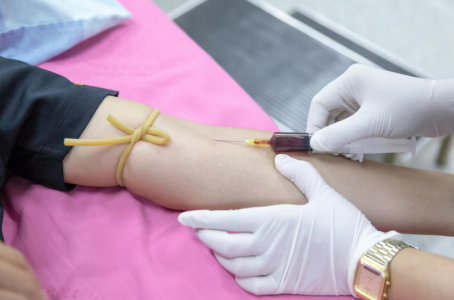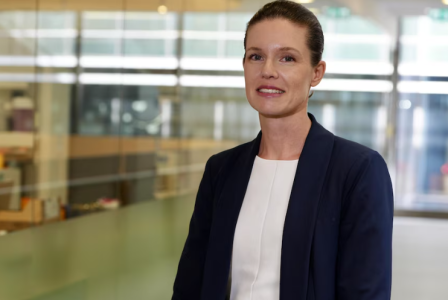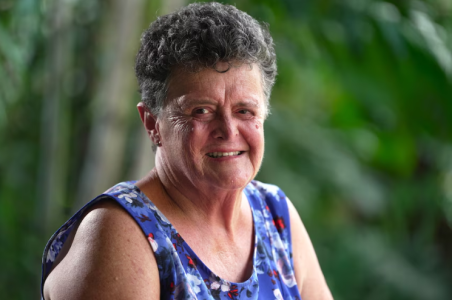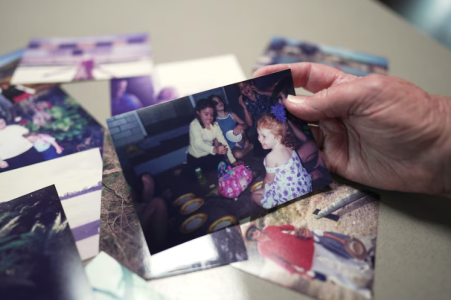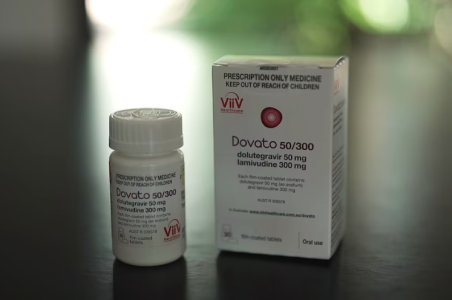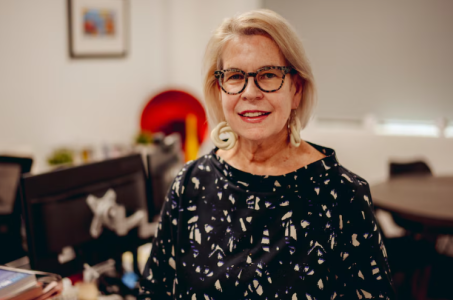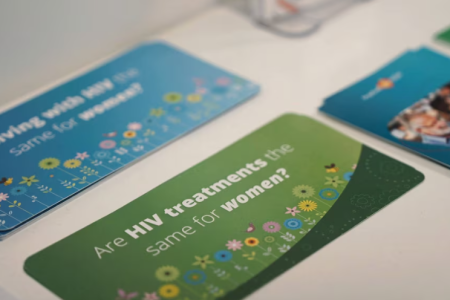Women living with HIV no longer a priority group, despite higher risks of late diagnosis and lack of specialised support
By
ABC News
- Replies 2
Women living with HIV are calling on medical professionals to normalise HIV testing for women and increase access to support services in regional areas, amid concerns they have been de-prioritised by the health sector.
Human immunodeficiency virus, or HIV, spreads through bodily fluids and attacks the body's immune system, increasing a patient's viral load.
It can be treated with medications that reduce and suppress the viral load, meaning the virus no longer poses a risk to a person's health and cannot be transmitted.
But getting treatment begins with diagnosis.
New data from the University of New South Wales's (UNSW) Kirby Institute shows over half of the women living with HIV in the Northern Territory and Western Australia were diagnosed late, years after experiencing a deterioration of their health.
Nationally, 38 per cent of women living with the virus are diagnosed late.
Skye McGregor, an epidemiologist at the Kirby Institute specialising in HIV surveillance and research, said women were much more likely to experience late diagnosis of HIV.
She said it could mean someone was unknowingly living with HIV for years, to a point the virus could have seriously damaged their body.
Pregnancy most common time for diagnosis
In the 1990s, Del Batton had only heard of HIV in passing.
"Like many people, I always understood it basically was a gay disease and never considered I might be at risk," the NT resident said.
As a busy working mother with a young daughter, it was only when she began the process of IVF that she was tested for the first time.
"The first thing they do when you set out to do IVF is they do a raft of blood tests," she said.
"They came back and said 'you have tested positive for HIV'."
"I went sort of, 'wow'."
Despite battling a month of illness a year before her diagnosis, she said her doctor had not considered a HIV test at the time.
"Why would he?" Ms Batton said.
"I was happily married, had a four-year-old daughter and was trying to have a second child."
Almost 20 years on, HIV researchers say the primary routine HIV screening for women is still through antenatal care in pregnancy.
Now an advocate, Ms Batton said reasons women were typically diagnosed late included medical professionals' biases around the virus and women having less access than men to information.
Removed as a priority
Last year, the ninth national HIV strategy removed women as a priority group for HIV elimination strategies instead grouping them under 'All people living with HIV'.
Dr McGregor said while there were higher rates of HIV in gay and bisexual men, women living with HIV faced unique risks that were not being sufficiently addressed.
She said the lack of testing for women meant their rates of HIV had not decreased as much as it had for men.
"At a 10-year timeframe we can see that among men, there's been a 36 per cent decrease in HIV diagnosis in this time versus only a 6 per cent decrease among women," she said.
"There's been very little change in the number of women diagnosed with HIV compared to men."
Dr McGregor said women were also under-represented in HIV research, which had impacted the quality of health information available to them.
"We have a lot of work to do around stigma and discrimination," she said.
"HIV is still a stigmatised infection, and we need to work further as a society to understand that this really prevents people from getting tested."
Calls for more support
Jane Costello was diagnosed with HIV more than 20 years ago.
She now runs one of Australia's largest support networks for people living with the virus, Positive Living NSW, which provides women-focused support groups.
The groups provide support to women living with HIV in areas like reproductive health, dating, pregnancy and menopause.
"Most women are simply amazed to discover there's other women living with HIV in all of Australia," Ms Costello said.
The NT has recently taken steps towards starting a women's focused support group, but Ms Batton said it was often difficult to get funding.
Women in other regional and remote areas are also hoping to start groups, but cash flow into HIV support organisations across Australia has run low in recent years.
Ms Costello and Ms Batton are both calling for more funding for HIV support services for women, and more targeted awareness campaigns.
"If we normalise testing, it will make this just seem like a routine part of healthcare," Ms Costello said.
Ms Batton just wanted women to know a HIV diagnosis was not the end of their lives.
"At the moment all you can see is HIV—eventually it will shrink and it will be just part of your life."
Written by Tilda Colling, ABC News.
Human immunodeficiency virus, or HIV, spreads through bodily fluids and attacks the body's immune system, increasing a patient's viral load.
It can be treated with medications that reduce and suppress the viral load, meaning the virus no longer poses a risk to a person's health and cannot be transmitted.
But getting treatment begins with diagnosis.
New data from the University of New South Wales's (UNSW) Kirby Institute shows over half of the women living with HIV in the Northern Territory and Western Australia were diagnosed late, years after experiencing a deterioration of their health.
Nationally, 38 per cent of women living with the virus are diagnosed late.
Skye McGregor, an epidemiologist at the Kirby Institute specialising in HIV surveillance and research, said women were much more likely to experience late diagnosis of HIV.
She said it could mean someone was unknowingly living with HIV for years, to a point the virus could have seriously damaged their body.
Pregnancy most common time for diagnosis
In the 1990s, Del Batton had only heard of HIV in passing.
"Like many people, I always understood it basically was a gay disease and never considered I might be at risk," the NT resident said.
As a busy working mother with a young daughter, it was only when she began the process of IVF that she was tested for the first time.
"The first thing they do when you set out to do IVF is they do a raft of blood tests," she said.
"They came back and said 'you have tested positive for HIV'."
"I went sort of, 'wow'."
Despite battling a month of illness a year before her diagnosis, she said her doctor had not considered a HIV test at the time.
"Why would he?" Ms Batton said.
"I was happily married, had a four-year-old daughter and was trying to have a second child."
Almost 20 years on, HIV researchers say the primary routine HIV screening for women is still through antenatal care in pregnancy.
Now an advocate, Ms Batton said reasons women were typically diagnosed late included medical professionals' biases around the virus and women having less access than men to information.
Removed as a priority
Last year, the ninth national HIV strategy removed women as a priority group for HIV elimination strategies instead grouping them under 'All people living with HIV'.
Dr McGregor said while there were higher rates of HIV in gay and bisexual men, women living with HIV faced unique risks that were not being sufficiently addressed.
She said the lack of testing for women meant their rates of HIV had not decreased as much as it had for men.
"At a 10-year timeframe we can see that among men, there's been a 36 per cent decrease in HIV diagnosis in this time versus only a 6 per cent decrease among women," she said.
"There's been very little change in the number of women diagnosed with HIV compared to men."
Dr McGregor said women were also under-represented in HIV research, which had impacted the quality of health information available to them.
"We have a lot of work to do around stigma and discrimination," she said.
"HIV is still a stigmatised infection, and we need to work further as a society to understand that this really prevents people from getting tested."
Calls for more support
Jane Costello was diagnosed with HIV more than 20 years ago.
She now runs one of Australia's largest support networks for people living with the virus, Positive Living NSW, which provides women-focused support groups.
The groups provide support to women living with HIV in areas like reproductive health, dating, pregnancy and menopause.
"Most women are simply amazed to discover there's other women living with HIV in all of Australia," Ms Costello said.
The NT has recently taken steps towards starting a women's focused support group, but Ms Batton said it was often difficult to get funding.
Women in other regional and remote areas are also hoping to start groups, but cash flow into HIV support organisations across Australia has run low in recent years.
Ms Costello and Ms Batton are both calling for more funding for HIV support services for women, and more targeted awareness campaigns.
"If we normalise testing, it will make this just seem like a routine part of healthcare," Ms Costello said.
Ms Batton just wanted women to know a HIV diagnosis was not the end of their lives.
"At the moment all you can see is HIV—eventually it will shrink and it will be just part of your life."
Written by Tilda Colling, ABC News.

